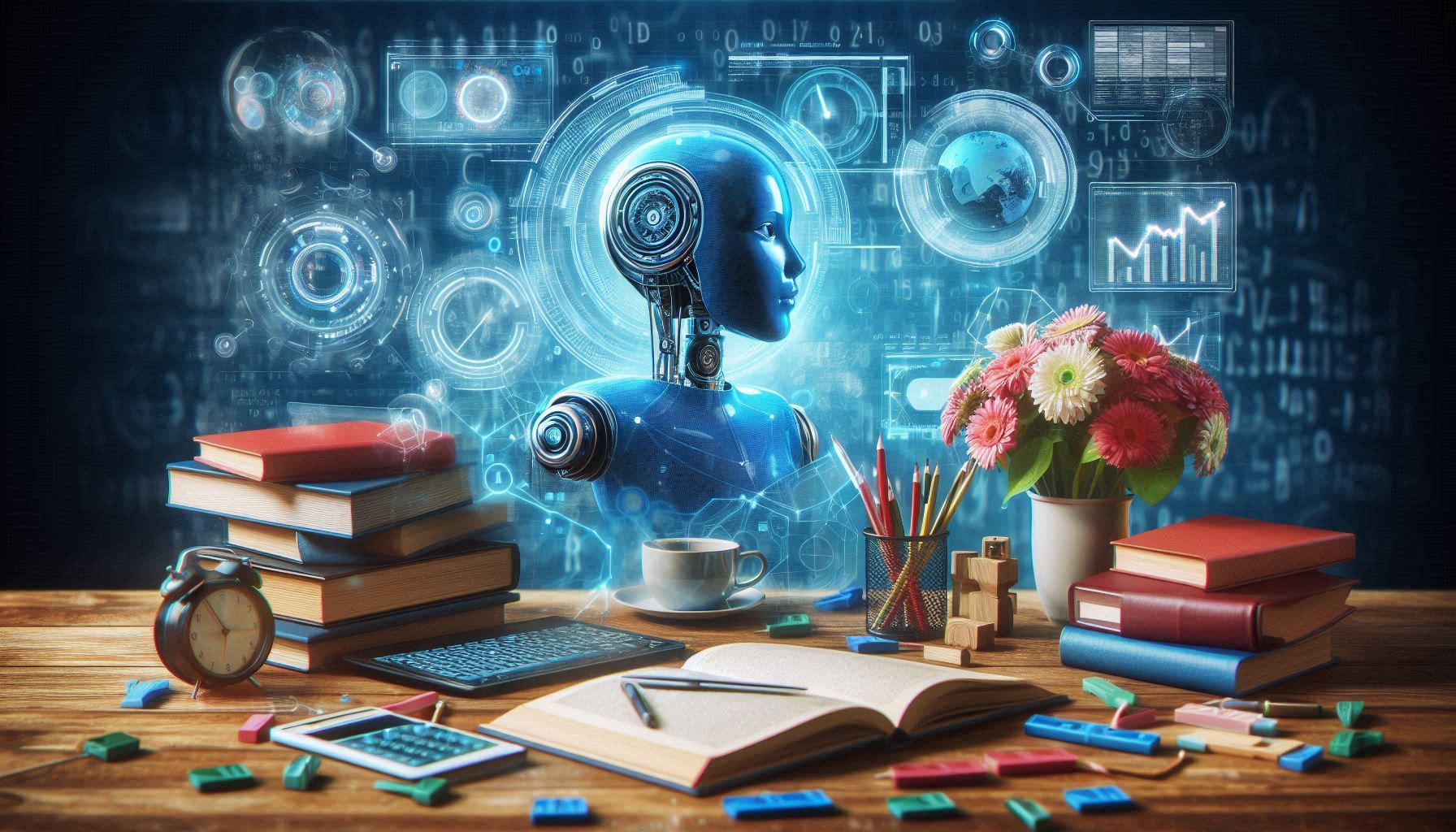In a groundbreaking development, artificial intelligence (AI) is transforming the education industry by introducing personalized learning tools that cater to individual students’ needs. Leading tech companies like Google, Microsoft, and EdTech startups have launched AI-driven platforms aimed at making learning more engaging, efficient, and accessible.
These tools are expected to revolutionize traditional teaching methods, making education smarter and more inclusive in 2025.
1. Google’s AI Tutor Goes Live
Google has announced the launch of its AI-powered virtual tutor, “EduMind AI”, which uses machine learning to provide customized study plans for students based on their performance and preferences.
- Features:
- Real-time performance analysis.
- Personalized study material recommendations.
- Interactive quizzes to boost engagement.
Why It Matters:
EduMind AI can bridge gaps in traditional learning by offering tailored support to each student, ensuring no one gets left behind.
2. Microsoft’s Virtual Classrooms with AI Integration
Microsoft has rolled out AI-driven virtual classrooms, making remote learning more interactive and engaging. These classrooms use real-time analytics to track student participation and provide feedback to educators.
- Key Features:
- Automatic note-taking for students.
- AI-based student behavior tracking for better teaching insights.
- Language translation for global inclusivity.
Impact:
These tools are particularly beneficial for remote learners and international students, ensuring equal learning opportunities worldwide.
3. EdTech Startup Introduces AI-Powered Adaptive Assessments
EdTech startup SmartLearn has unveiled its AI-based adaptive assessment platform, which adjusts question difficulty based on a student’s understanding in real time.
- Highlights:
- Tracks student performance on a granular level.
- Provides targeted suggestions for improvement.
- Reduces exam stress by adapting to individual learning speeds.
Why It’s Revolutionary:
This innovation helps educators identify weak areas in real time, allowing students to focus on improving specific topics.
4. AI Chatbots as Teaching Assistants
Universities and schools are now adopting AI chatbots as teaching assistants to answer student queries and provide instant academic support. Institutions like Stanford and MIT have already implemented AI chatbots in their classrooms.
- Features of AI Chatbots:
- Available 24/7 for student queries.
- Provides links to study materials and lectures.
- Tracks frequently asked questions to help teachers improve curriculum delivery.
Impact:
AI chatbots save educators’ time, allowing them to focus more on teaching and mentoring.
5. AI Transforms Learning for Special Needs Students
AI tools are breaking barriers for students with special needs. Platforms like Assist AI are helping visually impaired students by converting text into audio, while tools for hearing-impaired students offer real-time subtitles for video lessons.
- Key Tools in Use:
- Speech-to-text conversion for hearing-impaired learners.
- AI-powered braille readers for visually impaired students.
Why It’s Important:
AI ensures that every student, regardless of their challenges, gets equal access to quality education.
6. AI Gamification Tools Making Learning Fun
Gamified AI platforms are gaining popularity among younger students. These tools use AI to create personalized quizzes, interactive games, and challenges to make learning fun.
- Popular Gamification Platforms:
- Quizizz with AI-powered feedback.
- Kahoot for interactive classroom competitions.
Impact on Education:
Gamification increases student engagement and makes challenging subjects more enjoyable.
Challenges with AI in Education
While the benefits of AI in education are immense, there are some challenges:
- Data Privacy Concerns: Protecting student data is a major priority for institutions and companies.
- Access Issues: Not all schools and students have the resources to implement AI tools.
- Dependency Risk: Over-reliance on AI may reduce critical thinking and problem-solving skills in students.
Expert Opinion on AI in Education
Vivek Sharma, a seasoned tech blogger and founder of Computer Academy, says:
“The integration of AI in education is a game-changer. Personalized learning ensures that every student can achieve their potential, regardless of their starting point. However, it’s crucial to implement AI responsibly to address data privacy and accessibility issues.”
Conclusion:
AI is revolutionizing education by making learning more personalized, inclusive, and efficient. From AI tutors to gamified platforms, these innovations are setting the foundation for a smarter and more accessible education system in 2025.
Stay updated with Computer Academy for the latest news on AI, education, and emerging technologies shaping our future.
Breaking News AI Revolutionizes Education with New Personalized Learning Tools
Table of Contents
Discover more from ACADEMY
Subscribe to get the latest posts sent to your email.
